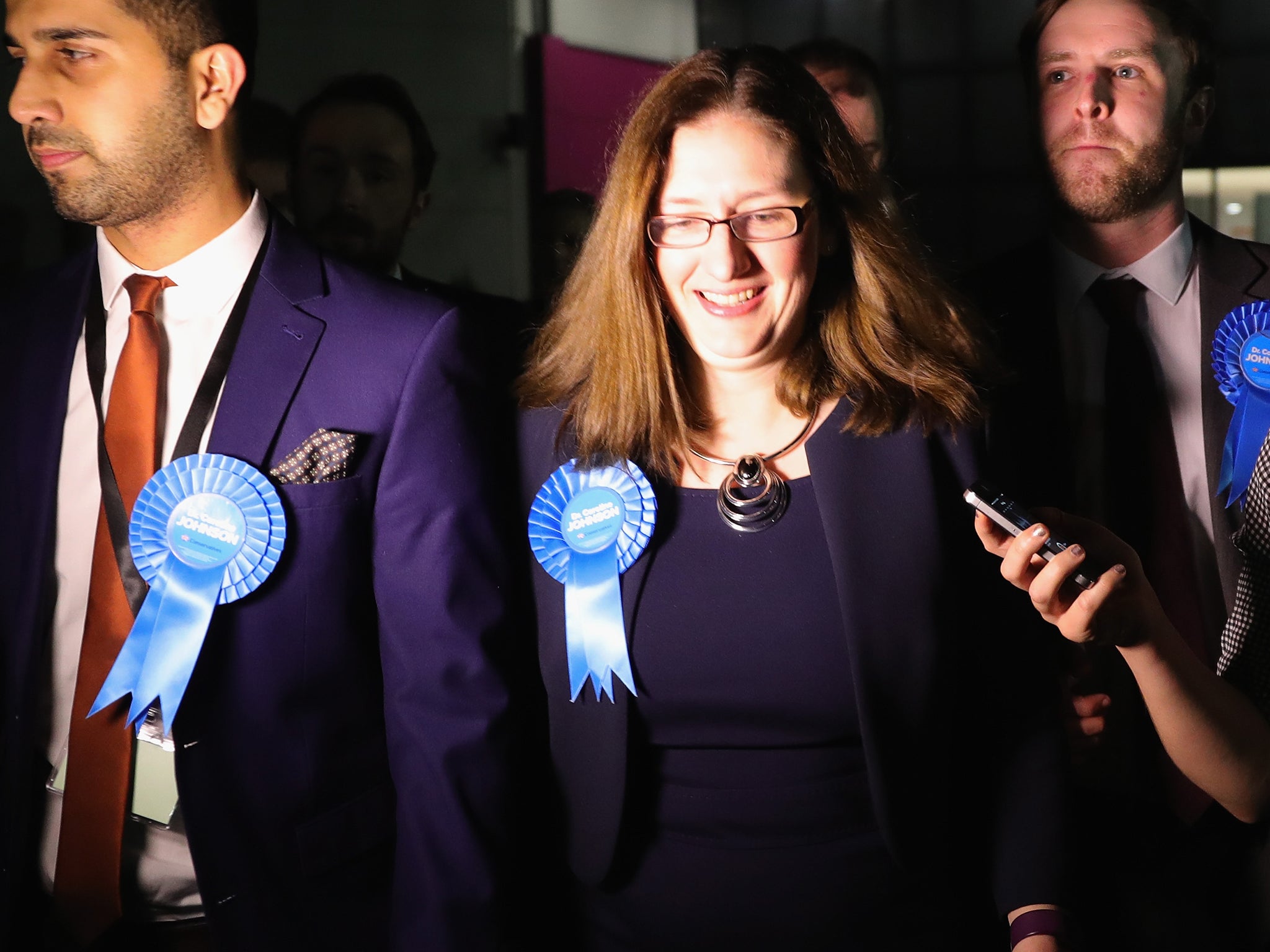Labour's contradictory message on immigration is to blame for its Sleaford by-election defeat
Whether Labour likes it or not, the country voted for control of immigration in the EU referendum. Jeremy Corbyn must change tack if he wants to save his party from inexorable decline


Their fears have been heightened by Thursday’s by-election in Sleaford and North Hykeham, a safe Conservative seat, where Ukip leapfrogged Labour to claim second place and Labour came fourth behind the Liberal Democrats. Labour’s dire position was shown by its relief at not losing its deposit, as it did in Richmond Park a week earlier.
Labour officials say Sleaford was another “Brexit by-election” and so the party was squeezed. The new fault line, replacing the traditional left-right divide, suits Ukip and the Lib Dems. Labour may have sharpened its Brexit act in the Commons, but the voters haven’t noticed because its message on the doorsteps is fuzzy.
One reason is Labour’s contradictory signals on immigration, a key part of the Brexit debate. Sir Keir Starmer, impressing as shadow Brexit Secretary, was previously the party’s immigration spokesman, when he went on a “listening tour” to find out what the country thinks about the issue. He concluded that immigration should be “reduced.” He said: “There has been a huge amount of immigration over the last 10 years and people are understandably concerned about it.”
Starmer’s ability to do even better in the Brexit brief is being undermined by Corbyn’s stance on immigration. It was significant that he appointed Diane Abbott, who shares his view, rather than Starmer, as shadow Home Secretary. All three are London MPs; the difference is that Starmer got out of the capital more while in the immigration post. Abbott is her own immigration spokesman, perhaps fearful that anyone she appointed to this junior job in her team would reach a different conclusion from her.
Abbott is adamant that Labour is not going to become “Ukip-lite”. But some Shadow Cabinet colleagues insist that calling for managed migration does not mean pandering to prejudice. “There is an unresolved debate about this,” one left-wing frontbencher put it diplomatically. “It is not a left-right issue. It is the North London Labour view against the rest.”
Whether Labour likes it or not, the country voted for control of immigration in the EU referendum. There is little point in Labour accepting the result if it remains in denial about what many of its natural supporters think about immigration. Andy Burnham, Abbott’s predecessor as shadow Home Secretary, told MPs on Wednesday: “The status quo – full free movement – was defeated at the ballot box and therefore not an option. We need to make the argument for an immigration system that allows for greater control, reduce the numbers coming here, but does so in a fair way.”
Next May, Burnham will seek election as Mayor of Greater Manchester, where seven boroughs voted Leave and three Remain in June.
I doubt Ukip’s claim that it will win a raft of Labour seats in the North at the next general election, but it could easily drag the Labour vote down and hand seats to the Tories. Ask Ed Balls; in his Morley and Outwood constituency, Ukip won 7,951 votes last year. The Tories beat Balls by 422 votes. The Tory majority over Labour was also smaller than the Ukip vote in 47 other seats. It could be worse next time, with Brexit the dominant issue.
A potential lifeline for Labour emerged on Thursday when the Home Affairs Select Committee, chaired by Yvette Cooper, announced an inquiry aimed at achieving a national consensus on immigration. It is a welcome and overdue move which will hopefully lower the temperature of a heated and polarised debate. Whether it will stop the Tories and Ukip attacking Labour as “soft” on immigration is another matter. Parties do not lay down their weapons lightly.
Corbyn could make them less potent if he chose to. Allies insist he does not support unlimited migration – even though his own spokesman said in September that he was “not concerned about numbers”. The Labour leader dipped a toe in the water by saying that his plans to stop firms undercutting wages by using migrant labour would bring down immigration. But that is not enough; those seeking a change want him to say that lower migration would be good for the country. They insist it would not undermine his long, principled stance against racism or turn Labour into “red Ukip.”
I don’t blame Corbyn for ignoring the views of his enemies within. But he should listen to his friends in the North before it is too late.
Join our commenting forum
Join thought-provoking conversations, follow other Independent readers and see their replies
Comments